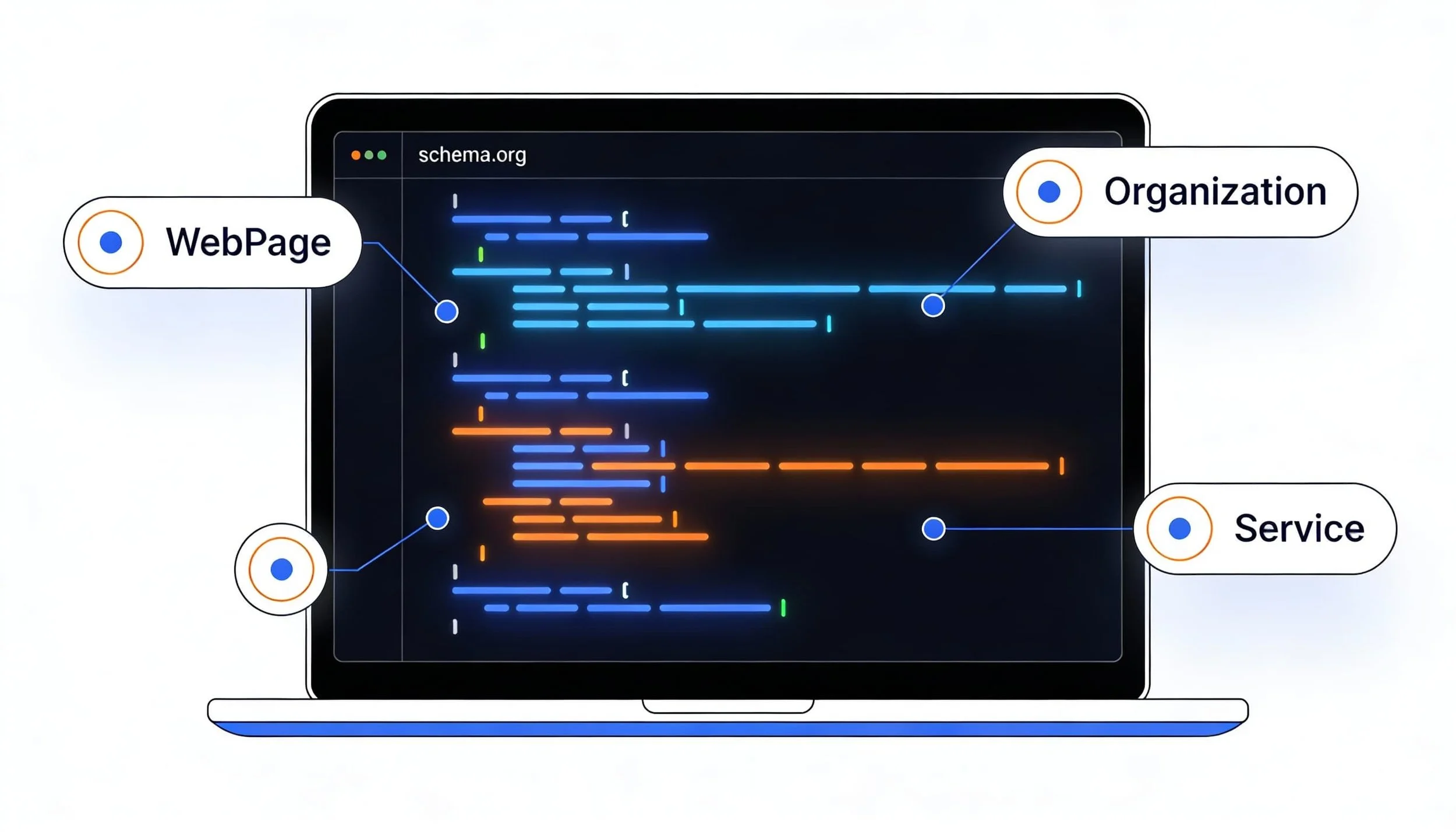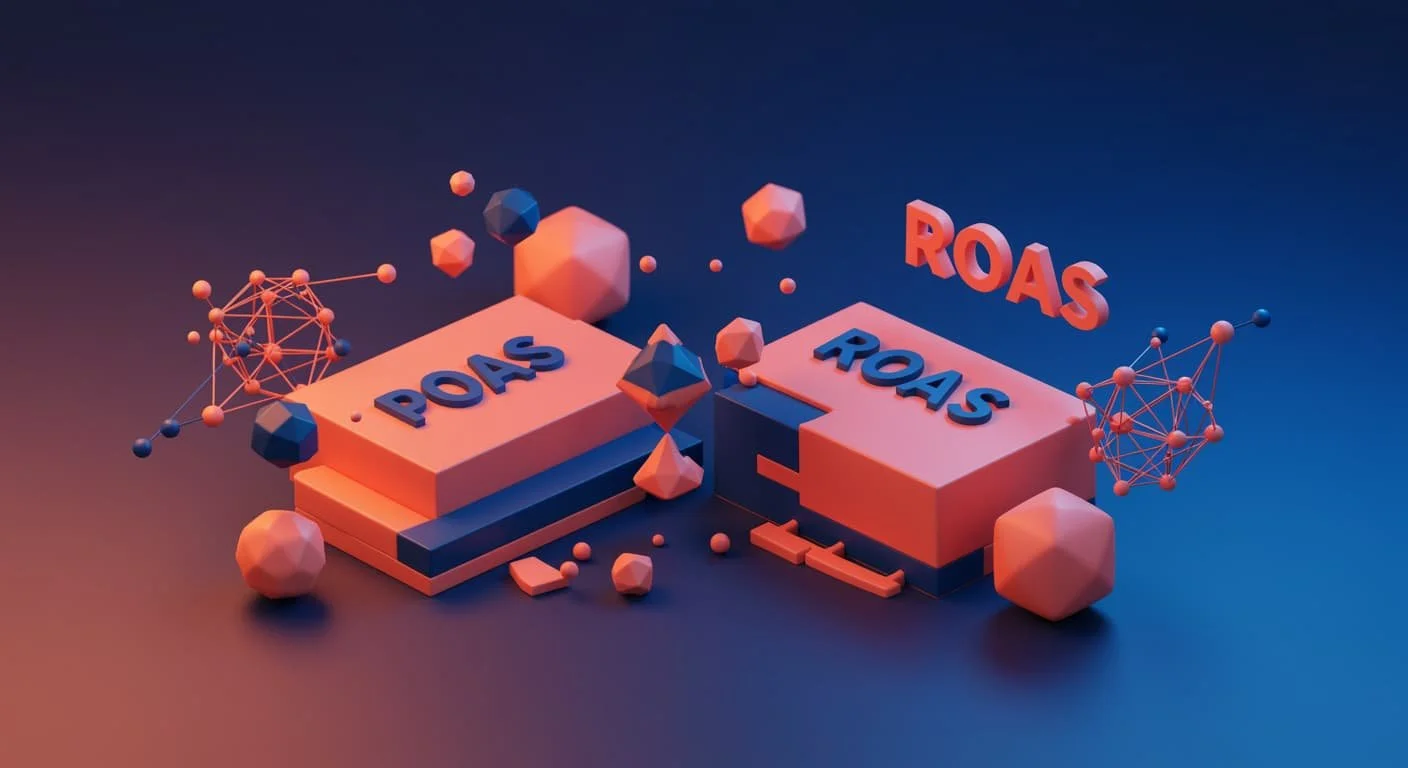Combining SEO and AI for Strong Organic Growth
- Fusion: AI and SEO are no longer separate worlds but together form modern content strategies
- CLEAR System: Context, Length, Expertise, Action, Result for better AI prompts
- Advanced Applications: Keyword research, content creation, real-time optimization, and personalization at scale
- Crucial Warning: Human oversight remains essential for quality, ethics, and strategic choices
- Future: AI tools will be essential to remain competitive in SEO and content marketing
The world of search engine optimization has changed drastically. Where SEO once revolved around keywords and backlinks, the playing field is now dominated by AI search engines, chatbots, and generative engines. Companies that still cling to traditional SEO tactics in 2026 will quickly lose ground.
This transformation requires a new approach: combining classic SEO with AI-driven optimization. In this article, you'll discover how to leverage this powerful synergy for maximum visibility in both traditional search engines and AI platforms.
Whether you're working on SEO optimization for your business, want to accelerate AI implementation, or are developing a complete online marketing strategy – this guide will help you.
Why AI and SEO are stronger together than ever
The rise of ChatGPT, Google Bard, and other AI assistants has fundamentally changed the search landscape. Users now ask conversational questions instead of typing short search terms. This shift requires content optimized for both traditional search engines and AI engines.
“Human-written content performed better than AI-generated content 94.12% of the time. Their average AI-written article had 52 visitors per month, while their average human-written article had 283 visitors per month.”
The New Reality of Search
Modern search behavior is characterized by:
Longer, conversational search queries
Expectation of direct, detailed answers
Multimodal search experience (text, voice, image)
AI-generated summaries in search results
These developments make generative engine optimization (GEO) as important as traditional SEO. For companies that haven't yet conducted their AI audit, it's time to make the leap.
AI Tools Revolutionizing SEO in 2026
The market for AI-SEO tools has grown explosively. Here are the categories making a difference:
Content Optimization Tools
Jasper AI & Copy.ai: For scalable, SEO-optimized content
SurferSEO & Clearscope: Real-time optimization suggestions during writing
Frase & MarketMuse: Identifying content gaps and building topical authority
Want to get started with these tools right away? Our AI training helps your team maximize the return from these platforms.
Technical SEO Automation
Screaming Frog AI: Automated crawling with AI-powered insights
BrightEdge DataCube: Predictive SEO analytics
Conductor: AI-driven content performance tracking
For Shopify webshops, there are specific AI tools that integrate seamlessly. Check out our trends in Shopify apps for the latest developments.
“SEO is no longer search engine optimization; it should be called search everywhere optimization. Stop thinking of SEO as your only hammer and Google rankings as your only nail.”
Concrete strategies for AI-SEO integration
1. Building Semantic Keyword Clusters
AI helps identify semantically related keywords that together form a topic cluster. Instead of focusing on individual keywords, you build authority around complete topics.
Practical example: For the topic "e-commerce marketing," an AI tool would suggest clustering such as:
Main topic: E-commerce marketing strategies
Sub-clusters: Conversion optimization, email marketing, social commerce
Long-tail variations: "best e-commerce marketing tools 2026"
This type of clustering also helps with performance marketing campaigns, where semantic groups lead to better ad targeting.
2. Content at Scale While Maintaining Quality
With the right AI prompting techniques, you can produce large volumes of content that still feels human and authentic. Our ChatGPT masterclass provides concrete examples.
Workflow for AI Content:
Topic research with AI tools (Semrush, Ahrefs)
Generate content brief via ChatGPT/Claude
Write first draft with AI (writing better prompts helps here)
Human review and optimization
SEO check with technical tools
For Shopify owners who want to optimize their product descriptions, this workflow is particularly effective.
3. Targeting Featured Snippets and AI Answers
AI search engines often display direct answers. Optimize for this by:
Clear question-and-answer structures
Concise paragraphs (40-60 words)
Lists and step-by-step instructions
Structured data implementation
This is crucial for local SEO in Belgium, where AI assistants are increasingly answering local queries.
GEO: The New Dimension of Search Engine Optimization
Generative Engine Optimization (GEO) specifically focuses on visibility in AI-generated answers. This requires a different approach than traditional SEO.
Core Principles of GEO
Authority and Reliability: AI systems prefer content from recognized experts and established brands. Invest in thought leadership content and expert quotes.
Conversational Content: Write as people speak. AI systems train on natural language, so formal or robotic texts perform worse. Our AI content creation service helps find the right tone.
Factual Accuracy: AI tools are becoming increasingly better at fact-checking. Ensure correct data, source citations, and up-to-date information. This is especially important for e-commerce SEO where product information must be accurate.
“Google’s goal is not to rank better content, it is to rank content that solves the searcher's problem. Machine learning makes it possible to associate brands with groups of searcher problems rather than individual keywords.”
The Human Factor Remains Crucial
Despite all AI capabilities, human expertise remains irreplaceable. AI can produce content, but strategy, creativity, and ethical considerations require human input.
Where AI Falls Short
Complex Strategic Decisions
Creative Concept Development
Ethical Considerations
Brand Voice and Personality
Local and Cultural Nuances
Performance marketing success stories show that the best results come from human-AI collaboration, not AI replacement. For example, check out our Bastiano case study where human creativity and AI efficiency converged.
Practical Implementation: Step-by-Step
Week 1-2: Foundation
Audit Current Content with AI Tools
Identify High-Potential Topics
Establish AI Content Workflows
A thorough AI audit is the perfect start for this process.
Week 3-4: Content Creation
Generate First AI Content Batches
Implement GEO Optimizations
Test Various AI Prompting Strategies
Use the RACE model for ChatGPT prompts for better results.
Week 5-6: Optimization
Monitor performance metrics
Refine content based on data
Scale up successful formats
Week 7-8: Advanced Tactics
Implement voice search optimization
Develop AI chatbot content
Experiment with conversion optimization
For Shopify webshops, there are specific CRO tactics that enhance AI.
Measurable Results: KPIs for AI-SEO
Traditional SEO metrics
Organic traffic and rankings
Click-through rates (CTR)
Time on page and bounce rate
Backlink acquisition
GEO-specific metrics
AI citations and mentions
Featured snippet captures
Voice search appearances
Chatbot referral traffic
“With AI, you can optimize your content to meet Google's E.A.T standards. You can create content that expertly answers user questions with authority. And that's the kind of content Google loves to show users.”
Avoiding Pitfalls in AI-SEO Implementation
Monitor content quality
Implement human-in-the-loop workflows
Use plagiarism detection tools
Conduct regular quality audits
Preventing Technical Debt
Document AI Prompts and Workflows
Content Template Versioning
Regular Backup of Successful Strategies
Adhere to Ethical Guidelines
Transparency on AI Use
Respect for Copyright and Original Sources
Avoid Misleading Claims or Fake News
The Future of AI-SEO: Trends for 2026 and Beyond
Emerging technologies
Multimodal AI: Optimization for Image, Video, and Audio Content
Real-time personalization: Dynamic Content Adaptation per User
Predictive SEO: AI Predicts Ranking Changes Before They Occur
Industry developments
Google's continued AI integration in search results
Bing's ChatGPT integration expansion
New players in the AI search space
Companies currently investing in AI-SEO integration are building a competitive advantage that is difficult to catch up with. For example, Local SEO strategies become exponentially more powerful with AI support. And for Google Ads optimization, AI opens up new possibilities for targeting and bidding.
Ready for the AI-SEO Revolution?
The combination of AI and SEO is no longer a distant dream, but a daily reality. Companies that master this synergy will dominate tomorrow's search results.
Whether you want to optimize Shopify SEO, accelerate e-commerce growth, or transform your complete online marketing strategy - AI-SEO integration is the key to success.
Want to get started right away? Our AI automation service helps set up automated content workflows. Or first check out our top AI tools for marketers for inspiration.
For Shopify owners, we offer specific services: from migration and setup to marketing and maintenance. Also, see why Shopify is the best choice for modern e-commerce.

🚀 More leads, higher conversion, better ROI
This article provided you with insights. Now it's time for action. Whether you want to build a profitable webshop, generate more revenue from performance marketing or SEO, or grow with AI marketing – we provide concrete support to help you move forward.
💬 Discuss your challenge directly with Frederiek: Schedule a free strategy call or send us a message
📧 Prefer to email? Send your question to frederiek@clickforest.com or call +32 473 84 66 27
Strategy without action remains theory. Let's take your next step together.
Frequently Asked Questions about Combining SEO and AI
-
SEO optimizes for traditional search engines like Google, while GEO (Generative Engine Optimization) focuses on visibility in AI-generated answers from tools such as ChatGPT and Google Bard.
-
No, AI tools support and accelerate SEO tasks, but strategic choices, creativity, and ethical considerations still require human expertise.
-
Start with accessible tools like ChatGPT for content ideation, Jasper for content creation, and SurferSEO for technical optimization. Our AI marketing guide provides a complete overview.
-
Combine traditional SEO metrics (traffic, rankings) with GEO-specific KPIs such as AI citations, featured snippet captures, and voice search appearances. For e-commerce, conversion rates are especially important.
-
Not necessarily. Google evaluates content based on quality and value, regardless of its source. Important considerations include focusing on quality, originality, and human review. Read more about SEO versus SEA strategies for a comprehensive approach.
-
Evaluate and adjust at least monthly. The AI landscape evolves rapidly, so agility is crucial for sustained success. A digital marketing analysis helps determine the appropriate frequency.
-
They vary from free (ChatGPT basic) to €200+ per month for enterprise tools. Start with free/low-cost options and scale based on results. For budget planning, see why hiring a digital expert is often more cost-effective.
-
Absolutely. AI tools democratize access to advanced SEO tactics. Small businesses can often innovate faster than large organizations. Our AI audit for SMEs demonstrates the possibilities.
-
Use specific prompts, request a conversational tone, add personal experiences, and always have humans review and adapt the content. Our guide on AI in online marketing provides practical tips.
-
On average, businesses see 300-500% ROI within 6-12 months due to increased efficiency, better rankings, and more qualified traffic. For concrete examples, view our case studies such as Vanhie and Authentic Flavours.
Sources and references
AI-SEO research and statistics
Digitaloft: “AI in SEO statistics 2025” – https://digitaloft.co.uk/ai-in-seo-statistics/
Detailed: “The State of SEO in 2025” – https://detailed.com/state-of-seo/
Generative Engine Optimization (GEO)
arXiv: “GEO: Generative Engine Optimization (full paper)” – https://arxiv.org/pdf/2311.09735.pdf
Google AI Overviews and Search Trends
Yahoo Finance / BrightEdge: “One Year Into Google AI Overviews, BrightEdge Data Reveals Google Search Usage Increases by 49%” – https://finance.yahoo.com/news/one-google-ai-overviews-brightedge-100000883.html
The Letter Two: “Google AI Overview Drives Views, Lowers Clicks: BrightEdge” – https://thelettertwo.com/2025/05/14/google-ai-overview-impressions-clicks-study/











